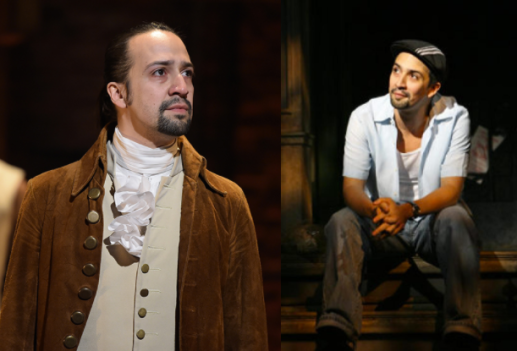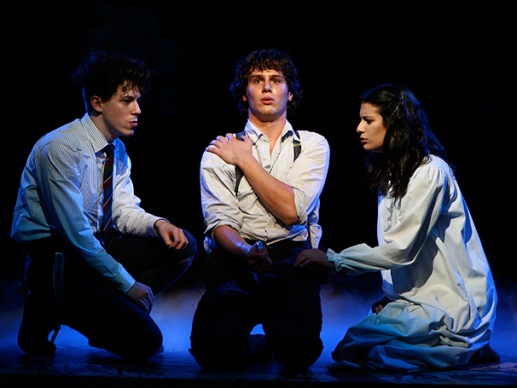Have you ever experienced the feeling of love in relation to (but not limited to): first dates, sex, marriage, parenthood, divorce, or death? If so, great. 1997’s Off-Broadway hit I Love You, You’re Perfect, Now Change! tackles all of these things. Not interesting enough for you? Let me tell you a little bit about how Chicago’s Quest Theatre Ensemble brings it to life.
Firstly, the most notable thing about Quest Theatre Ensemble is that all of their productions are free. Seriously, no tricks. All. Productions. Are. Completely free. Although, at the end of the show, they do ask for give-what-you-can donations. Of course, you by no means are required to this. Because I thoroughly enjoyed the show, I donated $20. I’d recommend giving at least a small dollar amount out of courtesy, but in the end, it’s up to you. No one will force you to pay anything. For theatre lovers, this is incredibly brilliant. We’ve all heard it before: theatre is “elitist” or “for rich people”. This reputation mainly stems from the fact that theatre hasn’t been a traditionally accessible medium. We can all go to a movie theatre and see a film, go to the library and check out a book, but… where do you go for theatre? Quest Theatre Ensemble is aiming to be that place. In the words of a company member after the show, “Once you put a price on a ticket, you’re excluding a lot of people”. And he’s right. No one should be excluded from theatre, even due to price.
For a free show, the quality of Quest’s I Love You is far beyond what you might expect. Now, there are no crazy lighting effects or any local stars with top billing, but that’s the beauty of this production. With a young, twenty-something cast of four, a few chairs and two tables, the vignettes of many different characters in the midst of a struggling relationship are told. Not necessarily all romantic relationships, mind you. A husband only feels at peace and in control in his car, a new dad comes to terms with loving his son, a recently divorced woman learns to love herself again, etc. There’s a situation for everyone. Quest Theatre Ensemble’s version of the show chooses to change some lines and lyrics to fit the location and time period. The mention of fidget spinners, Tinder, Mariano’s, the movie “Frozen”, to name a few examples. This gave the show an added layer of personality, like it was meant just for me in this small little theatre in the basement of a tiny building in Andersonville.
The environment was a huge factor in my enjoyment of this production, honestly. Think about it. It’s much easier to get sucked into an intimate, sometimes comedic, portrayal of how we view love throughout life in an intimate space rather than a large, 2,000 seat theater where you’re stuck in row J. The theatre for I Love You consisted of about 50 seats (seating is open), and I was lucky enough to snag a front row seat. A connection with the story and music is much more tangible when you can clearly see the emotion and mannerisms of the cast up close.
If you’re looking for a great way to spend two hours. I could not recommend Quest Theatre Ensemble’s I Love You, You’re Perfect, Not Change! enough. Mainly because the shows that instill a great sense of magic in you don’t seem all that magical on the outside until you give them a chance.
Quest Theatre Ensemble’s I Love You, You’re Perfect, Now Change! runs now until October 29th. Visit questensemble.org for more information.













